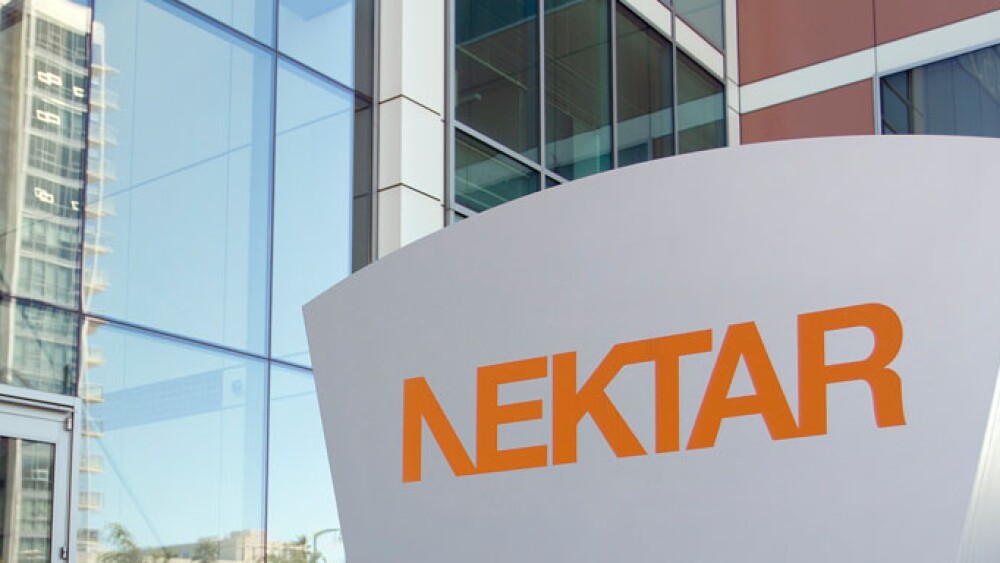July 24, 2017
By Alex Keown, BioSpace.com Breaking News Staff
SAN FRANCISCO – Just a few days following a disappointing rejection from the European Medicines Agency, Bay Area’s Nektar (NKTR) struck a lucrative deal with Eli Lilly valued at $400 million for the development of the early-stage NKTR-358, to treat autoimmune and other chronic inflammatory conditions.
Indianapolis-based Eli Lilly struck the deal only a few months after the dosing stages of a Phase I trial. Patients were first dosed with NKTR-358 in March 2017, but Eli Lilly must certainly see a tremendous future in the drug. NKTR-358 targets the interleukin (IL-2) receptor complex to stimulate T cells, which are inhibitory immune cells. By activating the T cells with NKTR-358, Nektar and Lilly believe the treatment will bring the immune system back into balance and has the potential to “lead to a profound clinical impact and healthy organ function in autoimmune conditions.”
What makes NKTR-358 so attractive to Eli Lilly is the drug’s ability to treat autoimmune disease symptoms without the side effects found in other immunosuppressant drugs. In addition to a design for less side effects, the drug is also designed to be self-administered by patients, which adds to its attractiveness.
Eli Lilly’s head of biotechnology and immunology research Thomas Bumol said the Nektar program was “an exciting addition” to the company’s immunology portfolio. Speaking of the deal for NKTR-358, Bumol said obtaining NKTR-358 is a reinforcement of the company’s commitment to continue growing its pipeline.
Nektar Chief Executive Officer Howard Robin said the deal with Eli Lilly will enable researchers to target a broad range of autoimmune disorders “in order to achieve its full potential as a first-in-class resolution therapeutic.”
Earlier this month, Nektar presented preclinical data for NKTR-358 that demonstrated its effectiveness in achieving those T cell responses and suppressing inflammation in multiple preclinical models. Jonathan Zalevsky, who heads Nektar’s preclinical programs, said at the presentation that preclinical data showed the therapy “increases the suppressive capacity and prolongs activation and proliferation of regulatory T cells with limited effects on conventional T cells in order to address the imbalance found in many autoimmune diseases.”
Under terms of the agreement with Eli Lilly, Nektar will receive an initial payment of $150 million and is eligible for up to $250 million in additional development and regulatory milestones. Nektar will be responsible for completing the Phase I trial and both companies will combine to conduct Phase II trials. During Phase II Lilly will assume 75 percent of costs. Nektar will have the option to participate in Phase III development on an indication-by-indication basis, according to the agreement. If approved for patients, Lilly will be responsible for global commercialization, but Nektar will have an option to co-promote in the U.S. under certain conditions.
Nektar is no stranger to striking development deals with larger pharmaceutical companies. The company has collaborative deals with the likes of Bristol-Myers Squibb , Takeda Pharmaceuticals and Daiichi Sankyo. It was that deal with Daiichi Sankyo that ran into a wall last week. The EMA rejected the marketing authorization for the first-line breast cancer treatment, Onzeald. Onzeald, a long-acting topoisomerase I inhibitor, was designed for patients who have previously been treated with an anthracycline, taxane and capecitabine therapies.
The company could also forge another deal with its investigational pain treatment. Last week, the company released data showing NKTR-181, a first-in-class opioid analgesic, showed significantly less abuse potential compared to oxycodone.Shares of Nektar jumped about 6 percent in early trading, climbing to $23.50.





